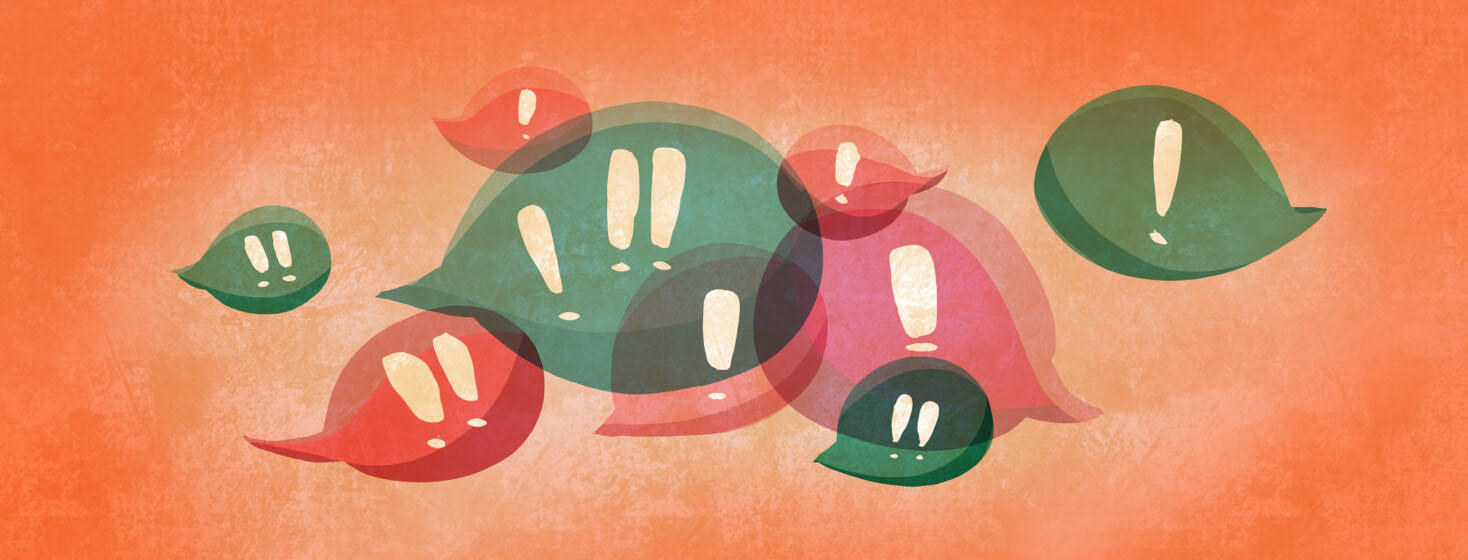5 Myths about Juvenile Psoriatic Arthritis
Being diagnosed with juvenile psoriatic arthritis (JPsA) as a kid was an odd experience for two reasons. The first was that I was a kid with arthritis- that's a little strange. But the second reason was that people had a lot of assumptions about my condition without knowing much about it.
The power of personal research
Besides receiving unwanted advice about miracle cures, I heard many 'facts' about my condition that ended up being myths. Sometimes, they were just silly or ignorant.
Others were confusing and more serious, driving me to find answers by speaking with my pediatric rheumatologist and doing personal research. Here are five myths I frequently encountered from others:
Kids can't get arthritis.
Approximately 300,000 kids in the US suffer from one of the many types of juvenile arthritis1, with juvenile psoriatic arthritis being one of many subtypes. JPsA is precisely what it sounds like- the childhood version of psoriatic arthritis.
JPsA is not a common form of juvenile arthritis, accounting for about six percent of JA cases2. I remember being one of three or four campers with it at Juvenile Arthritis Camp. My family and I also had a hard time finding reliable information about my diagnosis too.
You have to have psoriasis to have juvenile psoriatic arthritis.
When I was initially diagnosed with juvenile arthritis, JPsA wasn't considered as my specific subtype because I didn't have psoriasis on my skin.
It wasn't until a doctor put my nail pitting, mom's history of psoriasis together, and my symptoms together and realized it all fit perfectly with psoriatic disease. Both adults and kids can have psoriatic arthritis without having psoriasis first. Many kids develop arthritis symptoms before or at the same time as developing psoriasis, but not all.
There are other ways to distinguish JPsA from different JA types without psoriasis on the skin, such as having nail pitting, having a family history of psoriasis or PsA, or being affected by sausage fingers and toes.
JPsA only affects the joints.
As I mentioned in my last point, some kids will have psoriasis on their skin or nails. But kids with JPsA may suffer due to inflammation affecting other body parts, such as the eyes.
Kids need to be screened regularly by an ophthalmologist for uveitis. While frequent eye exams aren't the most pleasant thing, they help catch silent inflammation in its early stages.
Kids have less pain than adults.
Since childhood and now into my twenties, people have said I'm lucky I'm so young because the pain must not be so bad. I don't know where they get that idea.
Like adults with the condition, no two kids with PsA will have the same experience. But it's a common misconception that kids may not experience arthritis as severely as adults because they're young. That simply isn't true; inflammation doesn't discriminate by age. Kids can get very severe arthritis symptoms and require aggressive treatments.
Of course, that won't be every child's experience. Some may only have mild symptoms. And thanks to improved treatments such as biologics, the outcomes of childhood arthritis are improving every year.
Kids grow out of their condition.
After my diagnosis, a few people told me that they knew someone who had JA as a child but grew out of it. And they were on the right track. No one really "grows out of it," but some kids do go into lasting remission (either medicated or non-medicated) once they become adults.
But not all kids do. My family always hoped I would be one of the lucky ones, but it was disappointing to watch the years go by without going into lasting remission.
Treating JPsA in its early stages can help kids achieve a lasting remission, but some kids go into adulthood requiring treatment for active arthritis. Kids with juvenile psoriatic arthritis will be reclassified to have juvenile-onset psoriatic arthritis as adults.
Fact: Kids with JPsA can still have happy, fulfilling lives.
After all those serious myths, I wanted to end on a hopeful fact: kids with JPsA can go on to live happy lives. With proper medical care, school accommodations, and a supportive family, kids can thrive!
It may be harder at times, and expectations may have to change over time. But a diagnosis of JPsA shouldn't make you lose hope for the future.

Join the conversation